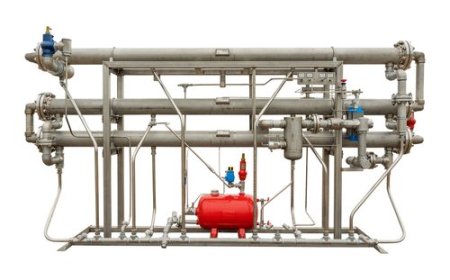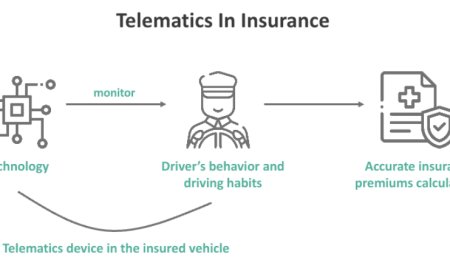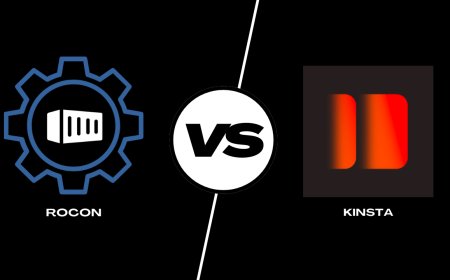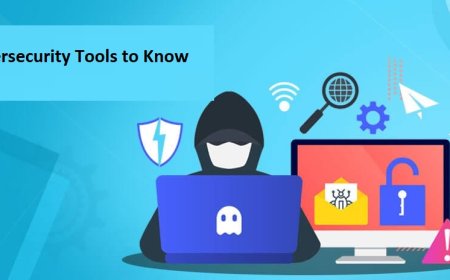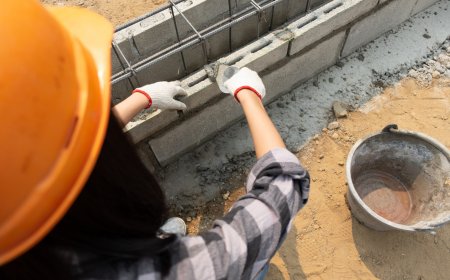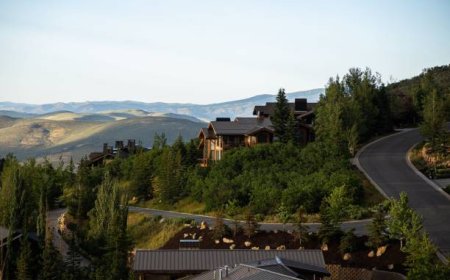How to Earn Trade Certifications in San Jose
How to Earn Trade Certifications in San Jose San Jose, the heart of Silicon Valley, is more than just a hub for tech giants and innovation—it’s also a thriving center for skilled trades. As infrastructure expands, green energy initiatives grow, and aging systems require modernization, demand for certified tradespeople continues to rise. From electricians and plumbers to HVAC technicians and welder
How to Earn Trade Certifications in San Jose
San Jose, the heart of Silicon Valley, is more than just a hub for tech giants and innovation—it’s also a thriving center for skilled trades. As infrastructure expands, green energy initiatives grow, and aging systems require modernization, demand for certified tradespeople continues to rise. From electricians and plumbers to HVAC technicians and welders, trade certifications are no longer optional—they’re essential for career advancement, legal compliance, and competitive wages in the region. Earning a trade certification in San Jose opens doors to stable, high-paying jobs with strong job security and opportunities for entrepreneurship. Whether you’re a recent high school graduate, a career changer, or a veteran looking to transition into a new field, understanding how to earn trade certifications in San Jose is the first step toward building a future-proof career. This comprehensive guide walks you through every stage of the process, from identifying the right certification to navigating local regulations and leveraging community resources.
Step-by-Step Guide
Step 1: Identify Your Trade Path
The first step in earning a trade certification in San Jose is selecting the right trade that aligns with your interests, skills, and long-term goals. San Jose’s economy supports a wide range of licensed and certified trades, including:
- Electrical Contractor
- Plumbing Contractor
- Heating, Ventilation, and Air Conditioning (HVAC) Technician
- Sheet Metal Worker
- Welder
- Construction Inspector
- Fire Sprinkler Installer
- Boiler Operator
- Appliance Repair Technician
- Renewable Energy Installer (Solar PV, Battery Systems)
Research each trade’s day-to-day responsibilities, physical demands, earning potential, and projected job growth. The U.S. Bureau of Labor Statistics and the California Employment Development Department (EDD) provide up-to-date labor market data. In San Jose, trades related to energy efficiency, smart building systems, and sustainable construction are experiencing the fastest growth due to local ordinances and state mandates like Title 24 energy codes.
Consider shadowing professionals, attending open houses at trade schools, or volunteering with local unions to get firsthand exposure. Choosing a trade you genuinely enjoy increases your likelihood of persistence through training and licensing exams.
Step 2: Meet Basic Eligibility Requirements
Before enrolling in any certification program, ensure you meet the foundational requirements common across most trades in San Jose:
- Be at least 18 years old
- Have a high school diploma or GED
- Pass a background check (required for most contractor licenses)
- Be legally authorized to work in the United States
- Have access to reliable transportation (many apprenticeships require travel to job sites)
Some trades, such as electrical work or plumbing, may require additional prerequisites like basic math and reading proficiency. If you need to strengthen your foundational skills, consider enrolling in adult education courses offered by the San Jose Unified School District or Santa Clara County Office of Education. These programs often provide free or low-cost GED prep, English as a Second Language (ESL), and math remediation.
Step 3: Enroll in an Approved Training Program
San Jose offers multiple pathways to gain the technical knowledge required for certification. The most effective route is through an approved training program that combines classroom instruction with hands-on experience. Here are the primary options:
Community College Programs
San Jose City College (SJCC) and West Valley College offer accredited vocational programs in electrical technology, plumbing, HVAC, and welding. These programs typically last 6 months to 2 years and culminate in a certificate or associate degree. SJCC’s Construction Technology Program is particularly well-regarded, with partnerships with local unions and contractors that lead directly to apprenticeships.
Apprenticeship Programs
Apprenticeships are the gold standard for trade certification in California. They combine paid on-the-job training with classroom learning. In San Jose, apprenticeships are typically administered through joint labor-management committees or state-approved agencies. Key programs include:
- International Brotherhood of Electrical Workers (IBEW) Local 595 – Offers a 5-year electrical apprenticeship
- Plumbing and Pipefitting Industry Training Fund (PPIFT) – Administers plumbing apprenticeships
- Sheet Metal Workers’ International Association Local 104 – Provides sheet metal and HVAC training
- United Association (UA) Local 38 – Covers plumbing, pipefitting, and HVAC
Apprenticeships usually require an application process, aptitude testing, and an interview. While they are competitive, they offer the highest return on investment: apprentices earn wages from day one and graduate with journeyman status and full certification.
Private Trade Schools
Several private institutions in San Jose offer accelerated trade training, such as California College of Trade Skills and San Jose Trade Institute. These schools often focus on exam prep and job placement. Ensure any private school you consider is accredited by the California Bureau for Private Postsecondary Education (BPPE) and has a proven track record of placing graduates in apprenticeships or jobs.
Step 4: Complete Required Hours of On-the-Job Training
Most trade certifications in California require a minimum number of supervised work hours—typically between 4,000 and 8,000 hours, depending on the trade. For example:
- Electrical apprentices: 8,000 hours over 4–5 years
- Plumbing apprentices: 6,000–8,000 hours
- HVAC apprentices: 4,000–6,000 hours
These hours must be documented and verified by your employer or union sponsor. Keep a detailed logbook of your work, including dates, tasks performed, and supervisor signatures. Many programs provide digital logbooks or mobile apps to streamline this process. Failure to accurately document hours is one of the most common reasons applicants are delayed in obtaining certification.
Step 5: Prepare for and Pass the Certification Exam
Once you’ve completed your training and accumulated the required hours, you’re eligible to sit for the certification exam. Exams are administered by state agencies and vary by trade:
- California Contractors State License Board (CSLB) – For contractors (e.g., electrical, plumbing, HVAC)
- California State Fire Marshal – For fire sprinkler and boiler operators
- International Code Council (ICC) – For building inspectors and energy auditors
- National Institute for Automotive Service Excellence (ASE) – For appliance and automotive technicians
Exams typically include two parts: a business and law section, and a technical trade section. The business portion covers contracts, insurance, workers’ compensation, and labor laws. The technical portion tests your knowledge of codes, safety standards, and installation procedures.
Prepare using official study guides, practice exams, and prep courses. Many community colleges and unions offer free or low-cost exam prep workshops. Focus on the most recent editions of the California Building Code (CBC), National Electrical Code (NEC), and Uniform Plumbing Code (UPC). Memorizing code sections is critical—many questions are scenario-based and require you to apply code language correctly.
Step 6: Apply for Your Certification or License
After passing the exam, submit your application with the appropriate agency. Required documents usually include:
- Proof of exam passage
- Work hour verification forms
- Proof of liability insurance
- Fingerprint clearance (via Live Scan)
- Application fee (varies by trade; $300–$700)
For contractor licenses through the CSLB, you must also designate a Qualified Individual (QI) who has passed the exam. If you’re applying as a sole proprietor, you are the QI. If forming a corporation or LLC, you must name a licensed individual who will oversee operations.
Processing times vary from 4 to 12 weeks. You can track your application status online. Once approved, you’ll receive your license or certification card, which must be displayed at job sites and on all marketing materials.
Step 7: Maintain and Renew Your Certification
Trade certifications in California are not permanent. Most licenses require renewal every two years. To renew, you must:
- Complete continuing education (typically 12–16 hours)
- Pay the renewal fee
- Submit proof of workers’ compensation coverage (if you have employees)
Continuing education topics often include updates to building codes, OSHA safety standards, energy efficiency regulations, and new technologies like smart thermostats or solar integration. Many local trade associations and community colleges offer approved CE courses at discounted rates for certified professionals.
Failure to renew on time results in license suspension. Reinstatement requires additional fees and may involve retaking portions of the exam. Set calendar reminders and enroll in CE courses early to avoid disruptions to your career.
Best Practices
Build a Professional Network Early
Trade certifications are not just about passing exams—they’re about building relationships. Attend industry events hosted by the Silicon Valley Building Industry Association (SVBIA), the San Jose Chamber of Commerce, or local trade union halls. Connect with journeymen, supervisors, and inspectors. Many job opportunities are filled through word-of-mouth before they’re ever posted online. Joining professional organizations like the Associated Builders and Contractors (ABC) or the National Association of Home Builders (NAHB) also provides access to exclusive training, job boards, and mentorship programs.
Stay Current with Local Regulations
San Jose has some of the most progressive building codes in California. The city mandates energy-efficient lighting, water-saving fixtures, and solar-ready rooftops on new construction. Familiarize yourself with San Jose’s Building and Safety Code Amendments, which often exceed state standards. For example, all new residential buildings must include EV-ready electrical outlets, and commercial projects require on-site renewable energy generation. Staying ahead of these regulations makes you more valuable to employers and clients.
Develop Digital Literacy
Modern trades require more than manual skills. Learn to use digital tools like:
- Bluebeam or Procore for reading and marking digital blueprints
- QuickBooks or Buildertrend for job costing and invoicing
- Mobile apps for code lookup (e.g., NEC Codebook App)
- Tablets and drones for site inspections
Employers increasingly prefer candidates who can document work digitally, communicate via project management software, and troubleshoot tech-integrated systems like smart HVAC or automated lighting.
Focus on Safety and Documentation
Accidents on job sites can derail careers. Always follow OSHA 10-hour and 30-hour safety protocols. Keep a daily safety log, wear proper PPE, and report hazards immediately. Equally important is documentation: take photos of completed work, obtain client sign-offs, and maintain organized records. In the event of a dispute or inspection, thorough documentation protects you legally and professionally.
Consider Specialization
Once you’ve earned your base certification, consider specializing in high-demand niches:
- Solar PV installation and battery storage
- Energy auditing and home performance
- Green building certification (LEED, CALGreen)
- Smart home automation integration
- Disaster-resilient construction
Specialized skills command higher pay and open doors to government-funded projects, which are abundant in San Jose due to state and federal climate initiatives.
Tools and Resources
Official Government Resources
- California Contractors State License Board (CSLB) – www.cslb.ca.gov – Licensing applications, exam prep, and code updates
- California Department of Industrial Relations (DIR) – www.dir.ca.gov – Apprenticeship standards and wage determinations
- San Jose Building and Safety Department – www.sanjoseca.gov/buildingandsafety – Local code amendments and permit requirements
- California Energy Commission – www.energy.ca.gov – Title 24 energy code resources and compliance tools
Training and Education Providers
- San Jose City College – Construction Technology Program – Offers certificates and associate degrees with apprenticeship pathways
- West Valley College – Trades & Technology Division – HVAC, electrical, and welding programs
- San Jose Unified School District – Adult Education – Free GED, ESL, and basic math prep
- California Apprenticeship Council – www.dir.ca.gov/das/Cal-Apprenticeship-Programs.htm – Directory of state-approved apprenticeships
Professional Organizations
- IBEW Local 595 – Electrical apprenticeships
- UA Local 38 – Plumbing, pipefitting, HVAC
- Sheet Metal Workers Local 104 – HVAC and sheet metal
- Associated Builders and Contractors (ABC) – Silicon Valley Chapter – Training, networking, and advocacy
- Bay Area Green Business Program – Certification for eco-conscious contractors
Free Learning Tools
- OSHA Outreach Training (10-Hour and 30-Hour) – Available online through OSHA-authorized providers
- Code Book Apps – NEC, UPC, and CBC apps for iOS and Android
- YouTube Channels – “The Engineering Mindset,” “Home RenoVision DIY,” “Electrical Technology”
- Free Online Practice Exams – CSLB sample tests, ICC practice quizzes
Financial Aid and Support Programs
San Jose residents have access to multiple funding sources:
- California Promise Grant – Waives enrollment fees at community colleges for eligible students
- WIOA (Workforce Innovation and Opportunity Act) – Provides tuition assistance for unemployed or underemployed adults
- CalGrant B – For low-income students pursuing vocational training
- San Jose Works – City-funded workforce development program offering grants for trade certification
- Union Apprenticeship Programs – Pay wages during training; no tuition fees
Apply for aid early—many programs have limited funding and competitive selection processes.
Real Examples
Example 1: Maria’s Journey from Retail to Licensed Electrician
Maria, 29, worked in retail for six years but wanted a career with more stability and growth. She enrolled in San Jose City College’s Electrical Technology Certificate program while working nights. After completing the 18-month course, she applied to IBEW Local 595’s apprenticeship program. She passed the aptitude test and was accepted. Over the next four years, she worked 8,000 hours under a licensed electrician while attending night classes. She passed the CSLB exam on her second attempt and became a licensed electrical contractor in 2023. Today, Maria runs her own small business servicing homes in South San Jose, earning over $85,000 annually. She credits her success to consistent study, mentorship from her journeyman, and using the CSLB’s free exam prep videos.
Example 2: James, a Veteran Transitioning to HVAC
James, a U.S. Army veteran, used his GI Bill benefits to enroll in West Valley College’s HVAC program. He completed the 12-month certificate course and immediately applied for an apprenticeship with UA Local 38. His military discipline helped him excel in safety protocols and documentation. Within two years, he became a certified HVAC technician. He now works for a green building contractor specializing in energy-efficient retrofits for low-income housing—projects funded by San Jose’s Climate Action Program. James received a $2,500 grant through San Jose Works to buy his first set of tools. He recently earned his LEED Green Associate credential and is preparing for his contractor’s license.
Example 3: The Rise of Solar Certification in San Jose
In 2022, San Jose passed an ordinance requiring all new residential buildings to include solar panels. This created a surge in demand for certified solar installers. Luis, a former plumber, took a 40-hour NABCEP (North American Board of Certified Energy Practitioners) training course through the Silicon Valley Energy Watch program. He passed the NABCEP PV Installation Professional exam and began working with local solar firms. Within six months, he was promoted to crew lead. His certification allowed him to earn $40/hour plus bonuses for system performance—nearly double his previous wage. He now trains new apprentices and advises clients on battery storage options.
FAQs
How long does it take to earn a trade certification in San Jose?
It typically takes 2 to 5 years, depending on the trade and pathway. Apprenticeships usually last 4–5 years for electricians and plumbers, while certificate programs at community colleges can be completed in 6–18 months. However, certification requires both training and documented work hours, so full licensure often takes longer than classroom time alone.
Do I need a college degree to get a trade certification?
No. A college degree is not required. Most certifications require a high school diploma or GED, plus completion of an approved training program and work hours. However, an associate degree in construction technology can enhance your job prospects and qualify you for supervisory roles.
Can I earn a trade certification while working full-time?
Yes. Many apprenticeship programs are designed for working adults. Classes are often held in the evenings or on weekends. Community college courses are also available online or in hybrid formats. Some employers even offer tuition reimbursement for employees pursuing certifications.
Are trade certifications valid statewide or only in San Jose?
Most certifications issued by California state agencies (like CSLB or DIR) are valid statewide. However, San Jose may have additional local permits or inspections required for certain jobs. Always check with the San Jose Building and Safety Department for city-specific rules.
How much does it cost to get a trade certification?
Costs vary widely. Apprenticeships are often free (you earn while you learn). Community college programs cost $1,000–$4,000 in tuition. Exam fees range from $150–$500. Licensing fees are $300–$700. Additional costs include tools ($1,000–$3,000), textbooks, and continuing education. Financial aid and grants can significantly reduce out-of-pocket expenses.
What’s the difference between a certification and a license?
A certification is a credential issued by a professional organization or training provider that verifies your knowledge or skill in a specific area (e.g., NABCEP for solar). A license is a legal authorization granted by a state agency (e.g., CSLB) that allows you to perform work for pay. In California, many trades require both a license and certifications for specialized work.
Can I get certified if I have a criminal record?
It depends. The CSLB and other agencies conduct background checks. Felonies related to theft, fraud, or violence may disqualify you. Misdemeanors and older offenses may be reviewed on a case-by-case basis. You can request a pre-evaluation from the CSLB before investing in training.
Is there high demand for certified tradespeople in San Jose?
Yes. San Jose faces a critical shortage of skilled tradespeople. The city’s rapid growth, aging infrastructure, and strict sustainability codes have created more job openings than qualified workers. The unemployment rate for certified electricians and plumbers in Santa Clara County is below 2%.
What’s the average salary for certified tradespeople in San Jose?
Salaries vary by trade and experience:
- Electrician (journeyman): $45–$65/hour
- Plumber: $40–$60/hour
- HVAC Technician: $38–$58/hour
- Welder: $35–$55/hour
- Solar Installer: $40–$70/hour (with certifications)
Many professionals earn $80,000–$120,000 annually, especially those with specialized skills or who run their own businesses.
Can I start my own business after earning a certification?
Yes. Once you hold a contractor’s license from the CSLB, you can legally start your own business. You’ll need to register your business name, obtain liability insurance, and secure a business license from the City of San Jose. Many certified tradespeople begin by working for a company and then launch their own ventures after gaining experience and client relationships.
Conclusion
Earning a trade certification in San Jose is one of the most reliable, rewarding, and future-proof career decisions you can make. In a city defined by innovation and rapid change, skilled tradespeople remain indispensable. The path may require time, effort, and persistence—but the returns are substantial: financial stability, professional autonomy, and the satisfaction of building tangible, lasting value in your community. From community college classrooms to rooftop solar arrays and underground pipe networks, certified tradespeople are the backbone of San Jose’s infrastructure and economic resilience.
By following this guide—selecting the right trade, enrolling in an approved program, documenting your hours, mastering the exam, and staying current with codes and technology—you position yourself not just as a worker, but as a professional leader in your field. The demand is here. The opportunities are abundant. And with the right preparation, your certification isn’t just a piece of paper—it’s the foundation of a thriving, lifelong career.










